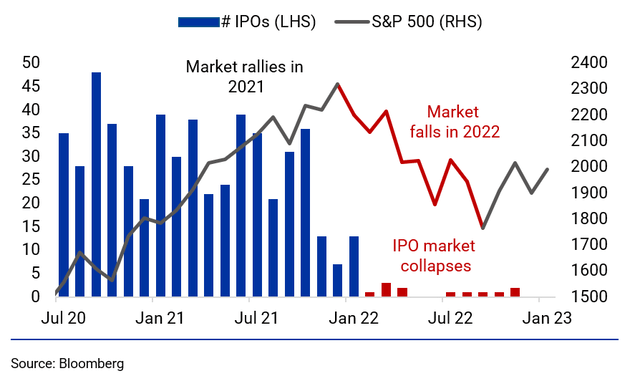US grand strategy is often misunderstood or underestimated. Not to say Americans are geniuses, but they're neither stupid nor incompetent. Since the end of World War 2 and especially after the fall of the Soviet Union, they've managed to basically get the world by its balls:
The US grand strategy is quite sensible and was obviously made by people who knew their ****. The facade of American politicians being essentially incompetent is just that - a facade. The people who are in charge of policy aren't the talking heads on TV. There is actual intelligence behind the throne.
- First, they gradually came to dominate finance via their currency and capital markets. Using financial power, they then buy up the companies and industries of other countries, and make the best talent work for them. Don't want to sell? Then the US will sanction / isolate / topple your government, either directly if they can find an excuse, or indirectly through sabotage, infiltration, and media control.
- Despite this financial focus, however, the US never neglected its R&D - which is how you can tell they actually have a strategy and isn't just being greedy. R&D is fundamentally a loss making enterprise, especially in the short term; but the US, contrary to the stereotype of dumb Americans, spent trillions on it. This allowed them to, for decades, control 90+% of "new technology" through having the best research institutions, strong industrial-academic-military fusion, and the best venture capital environment in the world.
- This lead in "new technology" then allowed the US to create new industries that they automatically dominated - like computers, smart phones, the internet, AI, EVs, etc. - and in so doing, create an "innovation monopoly"; hence the stereotype of US companies being particularly inventive even though it actually is just their R&D spend is so much larger than other countries.
- Mature industries with lower margins were off loaded to other countries, mainly because they were a drag on profits and, as stated above, US grand strategy called for maximizing return on investment in order to dominate global finance, with which they could keep spending on R&D, buy up whatever they wanted, and support a huge military to pressure those who won't sell.
- The final arm of the strategy is "export controls" or what is more appropriately understood as a high-end technology monopoly. Since the US spent so much $$$ on R&D, it naturally wanted to control the fruits of that R&D. To do so, it made strategic investments in IP enforcement and high-end supply chains, ensuring that they were ultimately under its control either directly or through trusted allies. This is how it keeps its leash on the Europeans, the Japanese, and the South Koreans. It might have surprised many Chinese that the US was able to get those countries to readily follow its lead in technology sanctions; but it's not surprising once you realize that those countries' high-end supply chains rely on US components, IPs, and R&D institutions. EUV lithography wasn't invented by ASML or the Dutch. It was invented in US labs. TSMC would not be able to operate without US technology.
But, intelligent and well-educated though they might be, US strategists are, at the end of the day, still just people; and people make mistakes. Their biggest mistake was believing that China could be subjugated by their financial machine, the same way other countries have been - and to be fair, for a while, it looked like China was going that way. But the rise of Xi Jinping - a guy who by all accounts was a socialist fundamentalist who "did not care about money" - was not expected. The sudden about turn by China - getting rid of entrenched capital interests, going after private power brokers, eliminating foreign agents and the deep culture of private-public corruption that had thrived before 2012 - caught them by surprise.
Although mainstream media regards Trump as the guy who did a 180 on the relationship, 2012 was the actual moment when US plans for China came crashing down and relations switched to being fundamentally antagonistic. The US grand strategy assumed that no country could look at the state of the world and think that it could take on the US; that all would recognize the futility of challenging US hegemony; and that the various examples of failures - the USSR, Japan, Germany, the EU, etc. - would sufficiently discourage any who might try.
But they were wrong.
Although I do not necessarily disagree with what you wrote, I like it very much, would like to add a couple of other points.
1.
It is what they said after WW1 that four empires were destroyed, something like that.
The same happened after WW2, no one was left standing in Europe. The British spent all their money in the war. Germany was completely destroyed.
The Marshall Plan was a stoke of genius on behalf of the Americans. It helped put Europe back on its feet, in a couple of generations.
During the meantime, America stood alone, untouched basically by WW2, unlike how the other countries had it. In short, as everyone was recovering, the Americans just kept on going, they had the luxury that their competitors were all kaput at the time.
America was like China today in many ways in terms of manufacturing power after WW2, because no one else around basically.
By the 1960's and 1970's Germany and Japan, defeated enemies, were allowed to remake themselves under American tutelage.
Incidentally, that was the time US manufacturing power started to decline, because the competition had returned.
2.
By the 1980's off shoring lower end manufacturing was a thing among rich developed nations.
It did not make sense to manufacture low end stuff, so just move that manufacturing aboard, lower costs for the Western multinational company. (That meant more profits.) The high end manufacturing remained in the West, because the other places were too backwards to do that.
This part, I firmly believe, there is no grand plan here.
That is just how things are. That is just business.
The Marxist have a nice view about it too IMHO, they call it exploitation, which I cannot disagree with either. Heh. Remember the stories we use to read, that how Apple iPhones made in China, that Apple would reap most of the value added and the money, while China got 1%-3% of it? That is just exploitation, on a global scale, but that was what class struggle is all about, capital versus labour.
So, all I am saying is two things, to add to the discussion.
1. America made some right moves, but they had not some advantages, but all the advantages after WW2. How history will judge the American power after WW2, has to be done in comparison to the era when the competition came back into picture.
2. How America rigged the global system to suit itself, although I am rightist, I believe what the Marxist are saying about that. Because that is how it always has been done, historically how European leading countries would do things, that trajectory was the same more or less historically.
I am not a Marxist, okay, maybe I am. What I really want, as rightist, is to save capitalism! If the Marxist can help me save capitalism, then I am all for it. That is why I have supreme faith in the Chinese Communist Party, they will save capitalism in the world. No one else will. Look at America. Free money, legislation for forced sales of private companies.
3. Actually there are more related thing we can talk forever about, and the Belt Road Initiative, ten years ago, someone made a study and added up all the numbers, and realized One Belt One Road was 7x times the size of the Marshall Plan. That is why all the bs from Western media never worked all these years. They had no clue.
4. It is what Kissinger said about the Chinese. He the Chinese have been around for a very long time, and face every possible political situation, when they were strong and when they were weak, and we are still here.
So, we can use that lens to view the Americans. It is easy playing the game when you got a three touchdown lead because the other team fumbled three times giving free points. Now that you are behind, let's see what you got.
Recently, that is not very impressive.



